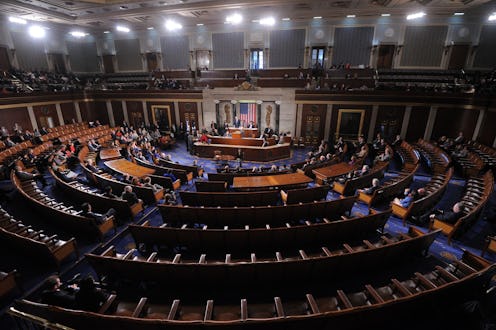News
The Electoral College Vote Could Be Tied
For fans of the HBO show Veep, it will come as no surprise what happens if neither presidential candidate gets a majority of the electoral votes. The odd and unlikely scenario was a major plot point of the show this past season. And while it makes for great comedy, things stand to get quite messy if life imitates art on Nov. 8.
We utilize the Electoral College to decide our presidential elections in America. Instead of using a national popular vote, which would mean that whoever receives the most individual votes wins, each state is assigned a number of votes commensurate with its population. So however many congressional representatives the state has is how many electoral votes it receives. 48 states and D.C. delegate these votes with a winner-take-all method, meaning whichever candidates wins the most votes in the state wins all of the electoral votes for that state. (Maine and Nebraska give each congressional district a vote.) A candidate needs 270 electoral votes to win the presidency.
But what happens if there is a tie? Or if a third-party candidate like Libertarian Gary Johnson or Independent Evan McMullin wrangles a state away, and neither Donald Trump nor Hillary Clinton end up with the 270 votes needed to win? The situation is highly unlikely, but not unprecedented.
Should no candidate receive the requisite 270 votes, it falls to congress to determine the president and the vice president, as laid out in the Constitution's 12th Amendment. The duties are split, with the House of Representatives voting for president, and the Senate voting for veep. Each state gets just one vote, even in the house, and that person is not required to vote for whichever candidate won that state in the election. In the Senate, if there is a tie, the president of the Senate — the sitting vice president — is permitted to make the tie-breaking vote.
This can obviously yield some unlikely scenarios, like a mixed-party White House. It has only come down to Congress to decide our president three times in our country's history, in 1800, 1824 and 1876. Both chambers of Congress are currently controlled by Republicans, which may lead to the thought that a tie would result in a Republican victory. However, the vote is cast by the newly-elected Congress, and control of the Senate, and less so the House, has the possibility to change hands this election. Additionally, not all Republicans are behind their nominee. Many congresspeople have publicly denounced Trump in the past, so their support for the nominee should not be assumed.
With all of the controversy already surrounding Trump's calls that the election is rigged, let's hope that the decision doesn't come down to this.
